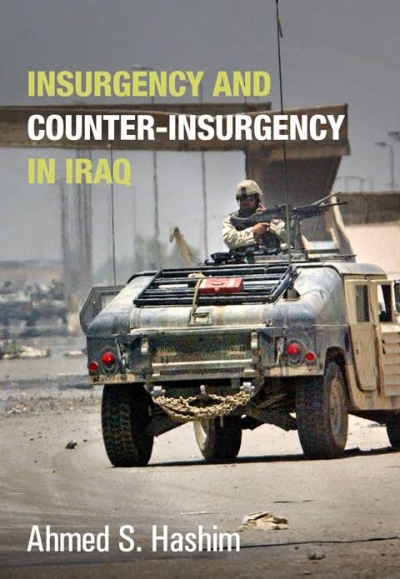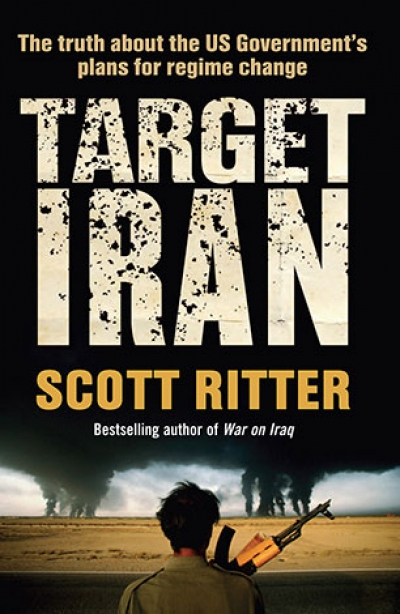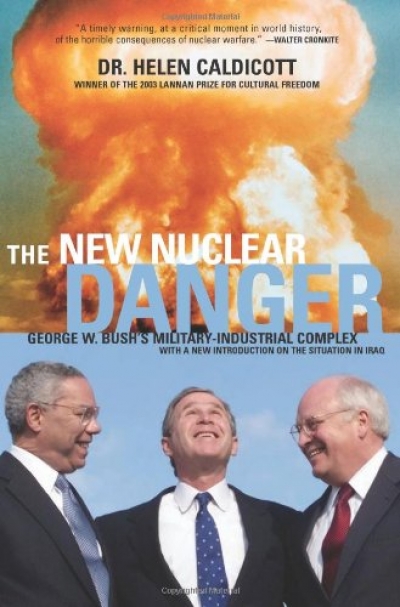



It would be wise to infer that the latest visit of Ehud Olmert, the prime minister of Israel, to Washington is meant to fuse zionist and imperialist objectives even further vis a vis Islamic Iran. We can read what the mainstream media, ever the servants of the imperial-zionist nexus, have left out of their reports; i.e., the top echelons of both the political and military establishments in Tel Aviv and Washington are finalising their plans for the only government in the world that is close enough to Israel to defy its expansionist schemes.
It sounds strange, but even the highly secular western media now admit that the people of Somalia “yearn” for the return of the Islamic Courts Union, which had ruled some parts of the country, including the capital (Mogadishu), for several months before it was toppled as a result of the US-backed invasion by the Ethiopian army. The admission follows the failure of the so-called transnational federal government (TFG), restored by the invasion and backed by the West and the UN, to introduce even a semblance of peace or law and order since the expulsion of the ICU
When it hit the airwaves in 1996, Al-Jazeera took the Arab world by storm. Compared to the sterile reporting of government-controlled channels in the Arab world, Al-Jazeera came as a breath of fresh air, although the better informed knew this was a mirage. Al-Jazeera was slick and took on some subjects (though not all) that the rest of the Arab media dared not broach.
After another particularly bloody week in which the Americans and their Western allies killed more than 100 Afghan civilians, President Hamid Karzai stood on the lawn of the presidential palace on June 23 to denounce the air strikes and artillery fire as “careless”. He asserted: “Afghan life is not cheap and should not be treated as such.” These sound like brave words, but they carry little weight with the Americans or anyone else. They, as well as Karzai, know that Afghans’ lives are indeed cheap.
While Americans celebrate the US Declaration of Independence on July 4, campaigners around the world will mark the 2,000th day since the opening of the Guantanamo Bay detention center on January 11, 2002. In this issue, FAHAD ANSARI discusses the differences between the ideals that the US claims to represent and its own behavior in the world today.
Since the collapse of the Soviet Union, the US has become the only world superpower, with the result that its imperial ambitions have inflated enormously. In the past, those ambitions centred on the establishment of a monopoly over economic resources, such as oil, gas and other minerals, and of political control of those countries, such as Saudi Arabia and Iran, that possess them. But with the arrival of president Bush at the White House those ambitions began to include the imposition of Christianity as the world’s dominant religion.
Insurgency and Counter-Insurgency in Iraq, by Ahmed S. Hashim. Cornell University Press, Ithaca and New York, US, 2006. Pp: 482. Hbk: $29.95, Pbk: $14.95.
As this issue of Crescent went to press, the Iranian and American ambassadors to Iraq were meeting in Baghdad to discuss the appalling situation in country.
The expression “uneasy lies the head that wears a crown” may have to be extended to include the modest Afghan karakol cap that has, together with the Dracula gown, become President Hamid Karzai’s trademark. Obviously, such theatrics impress few in a land whose people are famed for their independent spirit, where Karzai is regarded as an American puppet. This is the kiss of death, because America’s atrocious behaviour has alienated most Afghans.
In recent months the war of words between the West and Russia has escalated, with president Vladimir Putin delivering the three strongest attacks on the West of his seven-year rule. Not surprisingly, the two summits held between the US and Russia and the European Union and Moscow, on May 15 and May 18 respectively, failed to resolve the energy war between the two sides. But as Condoleezza Rice, the US secretary of state, explained, the confrontation between the two has nothing to do with ideology.
Target Iran: The Truth about the White House's Plans for Regime Change by Scott Ritter. Pub: Nation Books, New York, 2006. Pp: 316. Hbk: US$25.95.
In recent years, Syria has come to occupy a somewhat paradoxical international profile. On the one hand, it is an authoritarian dictatorship in the best traditions of the modern Middle East. On the other, it is a constant target of US political attack; accused of being a sponsor of terrorism because of its enmity to Israel, and relations with Hizbullah and Islamic Iran.
The threat to Muslims from an imperialistic American-Israeli power will not go away even if “Islamic terrorism” ends. The war-elites in Washington and Tel Aviv spent most of the last century sapping the resources of the world in what was supposedly a life-and-death struggle with communism. When communism collapsed, the politicians went looking for a new enemy to justify continuing their aggressive policies. Unable to find any convincing enemies to promote, they set about creating one from the movements of resistance created by their own policies; and so we now have “Islamic terrorism” or “Islamo-fascism”.
Some three months after US and Iraqi forces launched their much-trumpeted security plan, code-named “Operation Imposing Law” (Fardh al-Qanun), designed primarily to secure the Iraqi capital, Baghdad, and the restive al-Anbar province, the Iraqi insurgency has shown no significant sign of waning.
For years the Arab League has been a symbol of the incompetence and impotence of the Arab states. Every time there has been a major issue in the Muslim world, the League has met and done absolutely nothing of note. Yet now, for some reason, the summit that is taking place in Riyadh at the end of March (as this issue of Crescent goes to press) is being hailed around the world as crucial for the future of the region
The New Nuclear Danger: George W. Bush’s Military-Industrial Complex by Dr Helen Caldicott. Pub: The New Press, New York, 2004. Pp: 304. Pbk: US$17.95.
One has to look to Dr Mahathir Mohamad, former prime minister of Malaysia, for a slap to the Americans once in a while. Many have dismissed him as suffering from “former president syndrome”: ex-rulers indulge in rhetoric and tell others what they themselves should do were they still in power. But in the case of Mahathir, one thing many of his enemies and friends agree on is that the man has a lot of stamina for putting up a good fight.
Some clear truths are too serious for diplomatic dissemblers to acknowledge. One of these it the clear reality of the nature of theWashington regime's foreign policy. For at least half a century, American foreign policy has matched Israel's in its hostility to the self-determination of Muslims.
Why is US President George Bush threatening to go to war against Iran over its civilian nuclear program at a time when American forces are bogged down in Iraq and US defence secretary Donald Rumsfeld is facing a virtual insurrection against his disastrous handling of the war by retired American military generals?
There is an old saying about Afghanistan that goes something like this: when God wishes to punish someone, He sends them to attack the Afghans. The US and its ally, Britain, have blundered into Afghanistan on the pretext of fighting terrorism, but in reality to advance Western interests.



